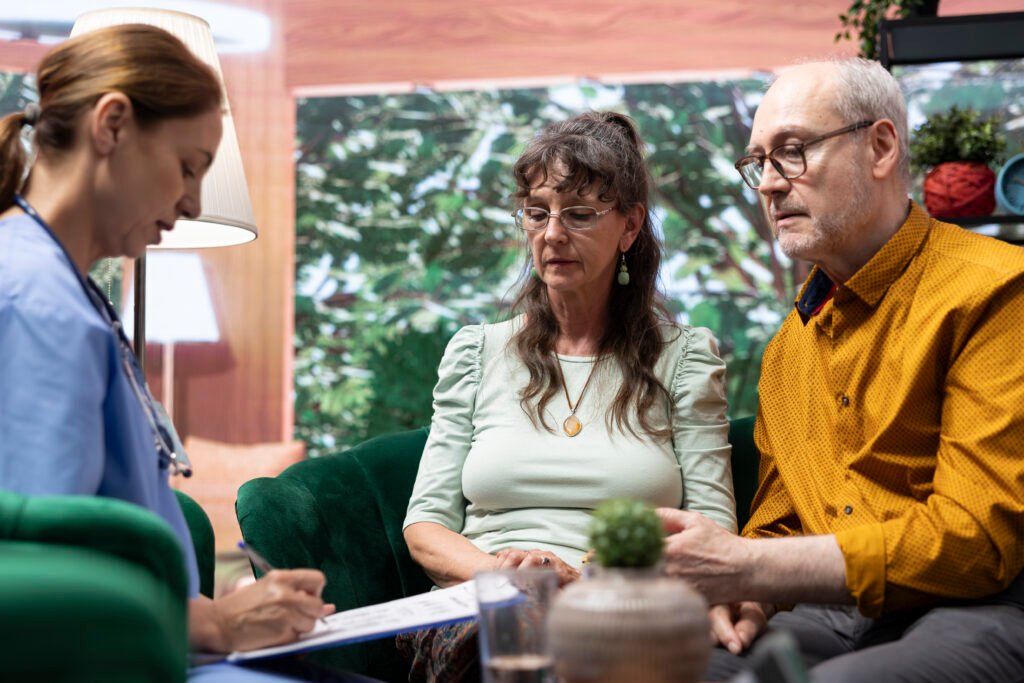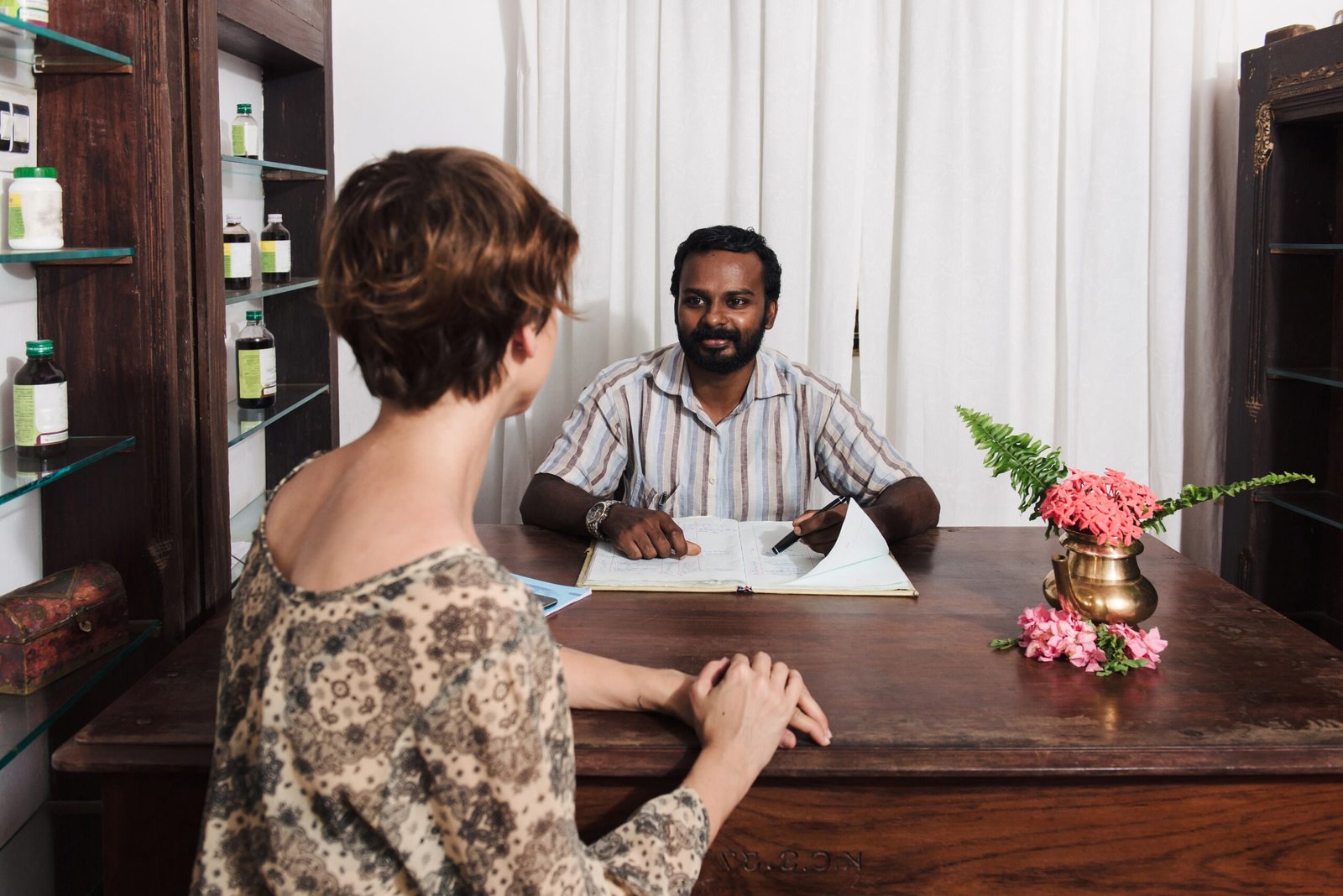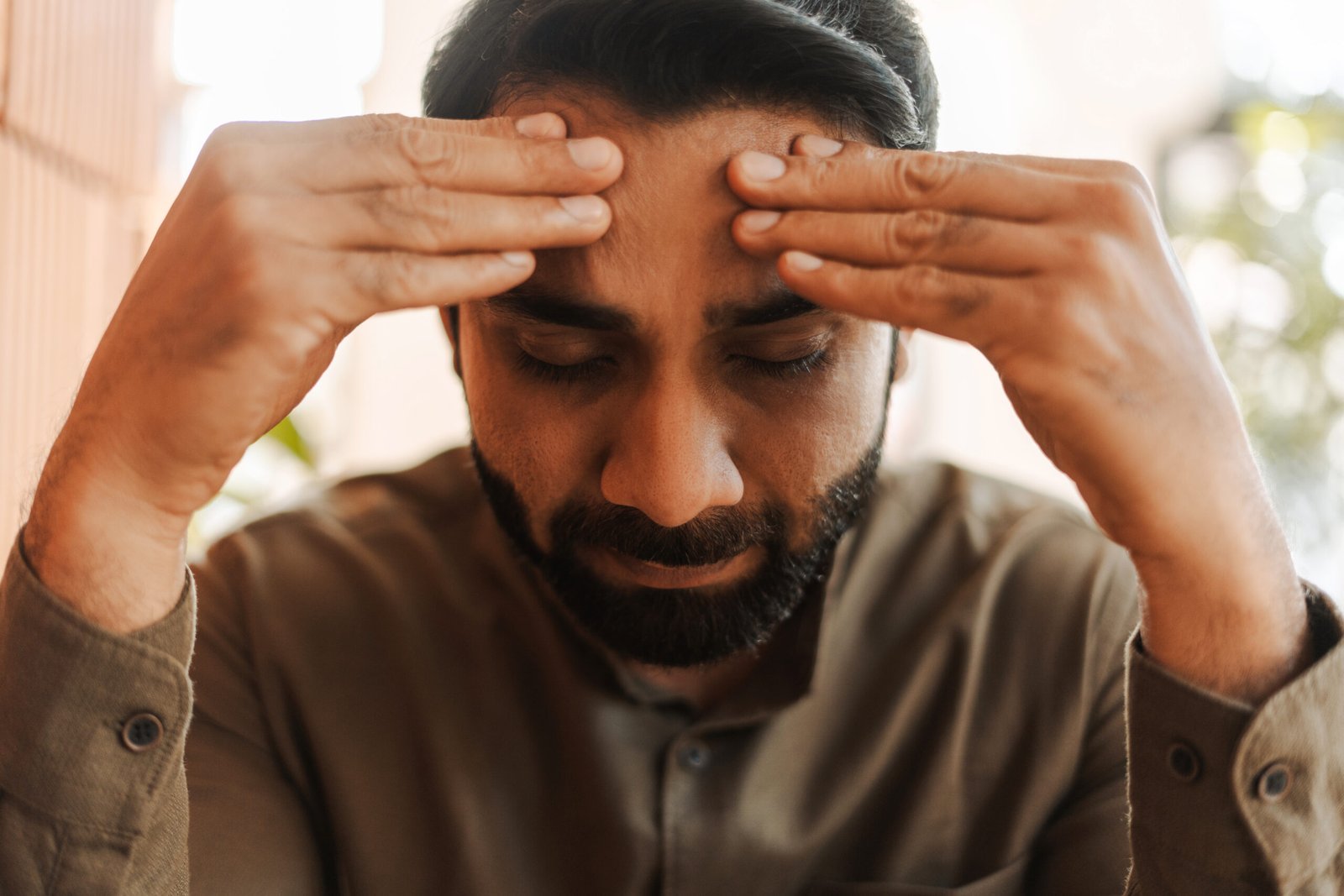A visit to an Ayurvedic practitioner is different from a typical medical appointment. Ayurveda emphasizes balance in all areas of life, so the consultation looks beyond symptoms to explore your lifestyle, emotions, and overall well-being.
Your practitioner will begin with a detailed personal and health history, including your:
• Daily diet and eating habits
• Work and living environment
• Physical activity and rest patterns
• Emotional well-being and relationships
• Sleep quality, stress levels, and mental outlook
This holistic intake helps uncover root causes of imbalance and guides a personalized plan for restoring harmony.

An Ayurvedic examination usually has three main steps, with a special focus on subtle signs of balance or imbalance in the body.
1. Observation (Darshan)
The practitioner observes posture, body structure, facial lines, skin tone, eyes, lips, nails, hair, and general appearance to assess vitality.
2. Touch (Sparsha)
Through palpation, listening to internal sounds, and tapping, the practitioner checks inner balance. Special attention is given to the pulse, tongue, nails, and speech.
• Pulse reading (Nadi Pariksha): Considered one of Ayurveda’s most refined diagnostic tools, used to assess doshic balance.
• Tongue diagnostics (Jihva Pariksha): The tongue’s color, coating, shape, and texture give clues about digestion, toxin buildup (ama), and organ health.
• Nail and skin analysis: Reveal signs of deficiency, circulation issues, or imbalance.
3. Questions (Prashna)
The practitioner will ask about your current concerns, their duration, and progression, as well as your emotional and mental state, since Ayurveda views health as a mind-body connection.
Depending on your constitution (dosha) and health goals, your practitioner may recommend:
• Panchakarma programs for cleansing and renewal
• Abhyanga (oil massage for circulation and relaxation)
• Shirodhara (gentle oil flow over the forehead for calmness)
• Herbal formulations and natural remedies
• Dietary and lifestyle adjustments tailored to your dosha
• Yoga, breathing practices, and meditation



